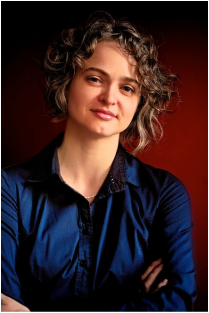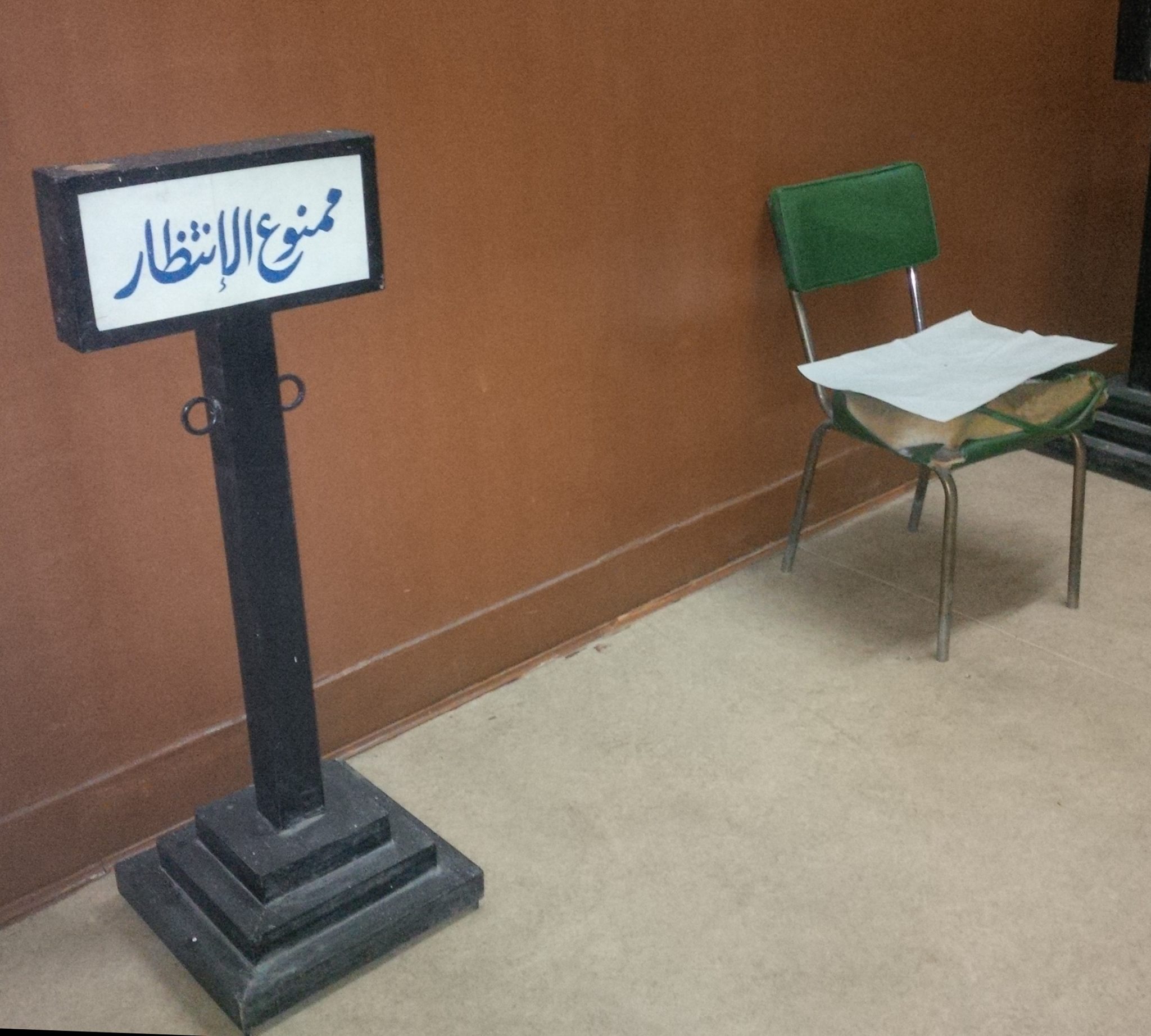course description
What’s a monocultural society? Or for that matter a multicultural one? What is meant by ethnocentrism? Or for that matter by Eurocentrism?
This course invites you to explore your relationship with the (cultural) “Other”. Our exploration will climb two stages: you will be introduced to the basic theoretical frameworks and key elements that constitute Cross Cultural Communication and Intercultural Learning, followed by a survey of practical application.
It is often said that to be able to know the Other, we need to know ourselves first. We will study the topics of identity, self- and other-awareness, perception, and belonging: the age-old ”us” vs ”them” paradigm that inevitably leads to stereotypes and prejudice. The process of acculturation presents yet another major theme and will serve as a conceptual bridge to studying ethnocentrism.
The second stage will be more hands on as it engages with the practical application of the different cross-cultural communication frameworks. With the use of experiential learning methods, we will consider the tools necessary when decoding others’ behaviours and communication patterns to build up competencies for successful and meaningful interaction with the Other. Here we will introduce the notion of ethnorelativism.
Our study of the Other will be enriched by writings of Martin Buber and Tzvetan Todorov. Joseph Shaules and the Bennetts will be our guides on the introductory tour of the cross-cultural field.
What to expect
● Opening up to learn about yourself and others in a safe environment through sharing of personal experiences and observations
● Participate in experiential learning activities; some of which may take place beyond the classroom
● Weekly engagement with assigned readings and voicing of your opinion in class discussions
● To produce a final individual or group mini-project based on the learning and experiences from the course
Why apply
● To gain deeper insight into who you are through self- and other-reflection
● To examine your attitudes towards the “Others” and your default settings when interacting with strangers
● To learn how to decode others’ behaviours and communication patterns
● To (re-)discover and strengthen your cross-cultural skills
● To explore the nature of ethnocentrism and enthorelativism and their implications in today’s world
What’s a monocultural society? Or for that matter a multicultural one? What is meant by ethnocentrism? Or for that matter by Eurocentrism?
This course invites you to explore your relationship with the (cultural) “Other”. Our exploration will climb two stages: you will be introduced to the basic theoretical frameworks and key elements that constitute Cross Cultural Communication and Intercultural Learning, followed by a survey of practical application.
It is often said that to be able to know the Other, we need to know ourselves first. We will study the topics of identity, self- and other-awareness, perception, and belonging: the age-old ”us” vs ”them” paradigm that inevitably leads to stereotypes and prejudice. The process of acculturation presents yet another major theme and will serve as a conceptual bridge to studying ethnocentrism.
The second stage will be more hands on as it engages with the practical application of the different cross-cultural communication frameworks. With the use of experiential learning methods, we will consider the tools necessary when decoding others’ behaviours and communication patterns to build up competencies for successful and meaningful interaction with the Other. Here we will introduce the notion of ethnorelativism.
Our study of the Other will be enriched by writings of Martin Buber and Tzvetan Todorov. Joseph Shaules and the Bennetts will be our guides on the introductory tour of the cross-cultural field.
What to expect
● Opening up to learn about yourself and others in a safe environment through sharing of personal experiences and observations
● Participate in experiential learning activities; some of which may take place beyond the classroom
● Weekly engagement with assigned readings and voicing of your opinion in class discussions
● To produce a final individual or group mini-project based on the learning and experiences from the course
Why apply
● To gain deeper insight into who you are through self- and other-reflection
● To examine your attitudes towards the “Others” and your default settings when interacting with strangers
● To learn how to decode others’ behaviours and communication patterns
● To (re-)discover and strengthen your cross-cultural skills
● To explore the nature of ethnocentrism and enthorelativism and their implications in today’s world
في مجتمعاتنا التي يغلب عليها أحادية الثقافة، نتربى على أن "طريقتنا- في التفكير والفعل- هي أفضل طريقة"، هذا وإن وُجدت أصلاً طرق أخرى يقبلها المجتمع. هل يمكن لمثل هذا السلوك أن يصمد فى وجه عالم معولم؟ البداية من هنا، كم أصبحت القاهرة ذات ثقافة أحادية حقًا؟
يأتي هذا المساق إلى النور ليلقى الضوء على علاقاتنا مع "الآخر أو المختلف ثقاقياً " كقضية أساسية عند تقديم حقل الدراسات الثقافية المتداخلة. تنقسم رحلتنا إلى جزئيتين: تقديم أساسيات
الإطار النظرى والمحاور الرئيسية التي تشكل التعلم المتداخل ثقافياً، متبوعة بالتطبيقات العملية.
"من أجل معرفة الآخر يجب أن نعرف من نكون أولاً" هذا يمثل الفرضية التي يرتكز عليها الجزء الأول. لذلك سنتعمق في مواضيع تتعلق بالهوية، والإدراك بالذات وبالآخر، ووجهات النظر، والانتماء: المسلسل الأزلى "نحن" في مقابل "هم" الذي يؤدي حتماً إلى الصور النمطية والأفكار المسبقة. بطبيعة الأمر, تمثل الثقافة وعملية اكتساب موضوع رئيسي بالإضافة إلى كونهم مقدمة إلى "المركزية العرقية".
الجزئية الثانية ستركز أكثر على الجانب العملى من أطر "التواصل متداخل الثقافات". بإدخال طرق التعلم التجريبي, سنسلط الضوء على الأدوات الضرورية لترجمة سلوك الآخر كما أنماط التواصل, من أجل تنمية مهارات تضفي المعنى على التفاعل مع الآخر. مما يعنى, سننتقل من "المركزية العرقية" إلى "النسبية العرقية".
كتابات مارتن بوبر و تزفيدن تودوروف ستساعدنا في دراسة "الآخر". أما جوزيف شولز و الأخوان بينيت فسيرشدونا فى جولتنا لاستطلاع حقل "تداخل الثقافات".
ماذا الذي عليكم توقعه:
التعلم أكثر عن الذات وعن الآخرين في محيط آمن، عن طريق مشاركة التجارب والملاحظات الشخصية
الالتزام بالمشاركة في الأنشطة التجريبية - البعض منها يحدث خارج الفصل
إعطاء وقت لقراءات أسبوعية ومشاركة الأراء داخل المحاضرات
يُتوقع من المشاركين مُخرج فى صورة مشروع بحثي صغير أو كتابات صغيرة.
أسباب للتقديم:
لبناء فهم أعمق عندما يأتي الكلام عن التفكر في الذات وفى الآخر
لجس نبض طباعك تجاه "الآخرين" وسلوكك المعتاد عند التعامل مع الغرباء
لتعلم كيفية فك شفرة سلوكيات الآخرين وأنماط التواصل
لإعادة استکشاف مهاراتك الـ"متداخلة ثقافياً" وتنميتها
لاكتشاف طبيعة "المركزية العرقية" و"النسبية العرقية" وتداعياتهما في عالمنا اليوم
يأتي هذا المساق إلى النور ليلقى الضوء على علاقاتنا مع "الآخر أو المختلف ثقاقياً " كقضية أساسية عند تقديم حقل الدراسات الثقافية المتداخلة. تنقسم رحلتنا إلى جزئيتين: تقديم أساسيات
الإطار النظرى والمحاور الرئيسية التي تشكل التعلم المتداخل ثقافياً، متبوعة بالتطبيقات العملية.
"من أجل معرفة الآخر يجب أن نعرف من نكون أولاً" هذا يمثل الفرضية التي يرتكز عليها الجزء الأول. لذلك سنتعمق في مواضيع تتعلق بالهوية، والإدراك بالذات وبالآخر، ووجهات النظر، والانتماء: المسلسل الأزلى "نحن" في مقابل "هم" الذي يؤدي حتماً إلى الصور النمطية والأفكار المسبقة. بطبيعة الأمر, تمثل الثقافة وعملية اكتساب موضوع رئيسي بالإضافة إلى كونهم مقدمة إلى "المركزية العرقية".
الجزئية الثانية ستركز أكثر على الجانب العملى من أطر "التواصل متداخل الثقافات". بإدخال طرق التعلم التجريبي, سنسلط الضوء على الأدوات الضرورية لترجمة سلوك الآخر كما أنماط التواصل, من أجل تنمية مهارات تضفي المعنى على التفاعل مع الآخر. مما يعنى, سننتقل من "المركزية العرقية" إلى "النسبية العرقية".
كتابات مارتن بوبر و تزفيدن تودوروف ستساعدنا في دراسة "الآخر". أما جوزيف شولز و الأخوان بينيت فسيرشدونا فى جولتنا لاستطلاع حقل "تداخل الثقافات".
ماذا الذي عليكم توقعه:
التعلم أكثر عن الذات وعن الآخرين في محيط آمن، عن طريق مشاركة التجارب والملاحظات الشخصية
الالتزام بالمشاركة في الأنشطة التجريبية - البعض منها يحدث خارج الفصل
إعطاء وقت لقراءات أسبوعية ومشاركة الأراء داخل المحاضرات
يُتوقع من المشاركين مُخرج فى صورة مشروع بحثي صغير أو كتابات صغيرة.
أسباب للتقديم:
لبناء فهم أعمق عندما يأتي الكلام عن التفكر في الذات وفى الآخر
لجس نبض طباعك تجاه "الآخرين" وسلوكك المعتاد عند التعامل مع الغرباء
لتعلم كيفية فك شفرة سلوكيات الآخرين وأنماط التواصل
لإعادة استکشاف مهاراتك الـ"متداخلة ثقافياً" وتنميتها
لاكتشاف طبيعة "المركزية العرقية" و"النسبية العرقية" وتداعياتهما في عالمنا اليوم

Jana HOLLÀ has always been intrigued by how and especially why we humans behave in the ways we do. Choosing Cultural Anthropology therefore seemed like the right way to go. At some point, however, the passive observation was not enough. In a search for more, she came across the field of cross-cultural communication during her MA studies. By the time she enrolled in the Anthropology PhD program at Charles University in Prague she was a strong believer in the application possibilities the cross-cultural tools offered on top of the theoretical anthropological basis. Her academic interests refocused on the issues of identity and belonging in relation to interactions with the (culturally foreign) Others. Her PhD dissertation thus ended up examining a group of young middle class Cairenes and how their daily interactions with their semi-international shilla influenced the ongoing construction of their personal identities. By this time, a year-long study stay in Cairo turned into a proper expatriation. Career-wise she moved away from academia and became a cross-cultural consultant, trainer and group facilitator working both with the profit and non-profit sectors.
After well over a decade, Jana enjoys her expat life in Cairo, living what she preaches: embracing the challenges and opportunities living abroad offers with full awareness and deep appreciation.
After well over a decade, Jana enjoys her expat life in Cairo, living what she preaches: embracing the challenges and opportunities living abroad offers with full awareness and deep appreciation.
يانا هولا كانت دوماً تتسائل "كيف كبشر نتصرف على النحو التالى؟ ولماذا؟". ولذلك بدت دراسة الأنتربولوجيا الثقافية في محلها. ومع ذلك، في مرحلة ما، لم تكن مجرد الملاحظة كافية. بحثاً عن المزيد، أكملت دراساتها العليا في حقل "التواصل متداخل الثقافات". وبحلول موعدها مع تجربة الدكتوراه في جامعة تشارلز ببراغ أيقنت أن التطبيقات التي يوفرها الحقل ممكنة. اهتمامها الأكاديمى أعاد تسليط الضوء على قضية الهوية والانتماء فيما يتعلق بالتفاعلات مع (الغرباء ثقافياً). رسالة الدكتوراه الخاصة بها ركزت على مجموعة من شباب الطبقة المتوسطة من قاطنى القاهرة، وكيف أن تعاملاتهم اليومية مع "شلة" شبه أجنبية أثرت على على التكوين المستمر لهويتهم الشخصية. عند ذلك الوقت، تحولت يانا من باحثة تمضى سنة فى القاهرة إلى مغتربة تضيف من سنينها لشوارع القاهرة. فيما يخص مجال العمل، فقد تركت المجال الأكاديمى و أصبحت مستشارة "للتداخل الثقافى"، وتيسر ورش عمل في مؤسسات هادفة وغير هادفة للربح.
بعد ما يقرب من عقد من الزمن، تستمتع يانا من حياتها فى القاهرة، لما لا وهي تتبنى ما تنادى به؛ الترحيب بتحديات وفرص العيش بالخارج تحفز الإدراك والتقدير العميق.


